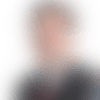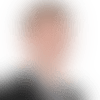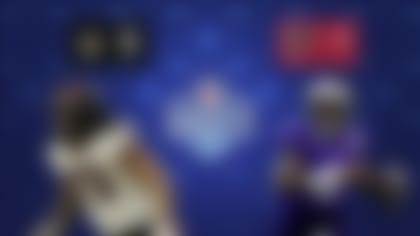Every team has a chance to help itself in the 2024 ߣĎČÉúAV Draft -- but which teams might end up helping each other?
Trades are one of the more intriguing elements of the draft, especially when it comes to swaps that benefit all parties. So before Round 1 kicks off in Detroit on April 25, we wanted to dream up three potential win-win deals involving first-round picks that could boost the fortunes of everyone involved. These are not predicted trades; rather, these are hypothetical exchanges that make sense in terms of value and team need.
NOTE: To construct trades that make sense, we used the point values provided by the . Trades are presented with these values, highlighting the premium paid by the team moving up.
GIANTS RECEIVE:
- 2024 first-round pick (No. 3 overall) | 2,200 points
PATRIOTS RECEIVE:
- 2024 first-round pick (No. 6 overall) | 1,600 points
- 2024 second-round pick (No. 47) | 430 points
- 2024 third-round pick (No. 70) | 240 points
- 2025 second-round pick | 400 points (valued at the 18th pick in the round)
COST: Giants pay a 21% premium (2,670 points) to move into the top three for a quarterback.
Why New England wins: Most signs point to the Patriots taking a quarterback at No. 3 overall, and I certainly get it. New regime in New England, new face of the franchise, highly touted QB class, etc. The thing is, signal-caller is far from the only hole Jerod Mayo and Eliot Wolf must fill to return this franchise to prominence. The Patriots need an infusion of offensive talent in the worst way, with arguably the least proven set of skill players in the entire conference. Not one player on the current roster had more than 50 catches or 600 receiving yards last year. In fact, the franchise hasn't had a 900-yard receiver since Julian Edelman in 2019 (1,117). So rather than drop another first-round quarterback into an unenviable situation -- and waste a year (or two) of his team-friendly rookie contract -- the Pats' brain trust, benefitting from the patience that typically is shown to new hires, decides to slide down three spots, where they're all but guaranteed one of the Big Three at receiver. They also pick up multiple second-round selections to help further bolster the supporting cast for when they do decide to cross the Jacoby Brissett bridge.
Why New York wins: I just made the case for why a QB-needy team should bypass the position because of a dearth of offensive playmakers on the roster … and now I have a squad in a similar situation moving up for a QB? What gives? Simple: Brian Daboll and Joe Schoen did not draft Daniel Jones. Furthermore, the third-year coach-GM combo is not prohibitively tethered to the injury-riddled QB -- or by mandate -- beyond the 2024 season. Fresh off an underwhelming 6-11 campaign devoid of excitement (save for a three-game win streak fostered by undrafted rookie Tommy DeVito), surely neither Daboll nor Schoen want to see another season short-circuited because of inconsistent QB play, especially not from an inherited arm. So if a guy they love is available at No. 3 -- say, Drake Maye, Jayden Daniels or J.J. McCarthy -- then moving up is a no-brainer. (If the Pats hold firm, and a QB the Giants covet falls to No. 4, the same rationale applies for a deal with the holders of that pick, the Arizona Cardinals.) New York's front office has already demonstrated its willingness to make organization-rocking moves this offseason, trading for Pro Bowler Brian Burns and allowing Saquon Barkley to walk. Leadership can truly put its stamp on the program (and re-energize the fan base) by hand-picking a new franchise passer.
-- Ali Bhanpuri
JETS RECEIVE:
- 2024 first-round pick (No. 7 overall) | 1,500 points
TITANS RECEIVE:
- 2024 first-round pick (No. 10 overall) | 1,300 points
- 2024 third-round pick (No. 72) | 230 points
- 2025 third-round pick | 180 points (valued at the 18th pick in the round)
COST: Jets pay a 14% premium (1,710 total points) to move up three spots for one of the "Big Three" wideouts.
Why New York wins: Aaron Rodgers' debut campaign with the Jets lasted all of four snaps. Now, Joe Douglas and Co. appear hellbent on making the most of the 40-year-old's sophomore season with the franchise. New York remodeled the offensive line, adding three new starters via free agency/trade. Gang Green also signed big-bodied wideout Mike Williams, but lest we forget, the veteran's still recovering from a torn ACL that ended his 2023 campaign last September. And frankly, even if Williams abruptly returns to form -- giving the Jets a viable threat to complement young star Garrett Wilson -- Rodgers still could use another weapon in the passing game. This is why you see so many people mocking Georgia's Brock Bowers to New York in the team's natural first-round slot. But what if the draft's top tight end -- by a country mile -- doesn't make it to No. 10? And perhaps more importantly, what if Douglas sees wide receiver, which is increasingly becoming one of the league's most expensive positions, as the greater long-term need? After all, Williams is only signed for 2024, while Wilson will be eligible for an extension -- one that will not come cheap -- after the coming season. With the growing belief that four quarterbacks will come off the board in the first six picks, simple math guarantees that at least one of the "Big Three" wideouts -- Ohio State's Marvin Harrison Jr., LSU's Malik Nabers and Washington's Rome Odunze -- will be available at No. 7. So the Jets can pounce on a coveted pass catcher with instant-impact ability for today and cost efficiency for tomorrow.
Why Tennessee wins: Second-year GM Ran Carthon has aggressively upgraded the roster over the last couple months, adding a flock of veteran starters to each side of the ball. His priciest move in this free-spending offseason: luring Calvin Ridley away from the division-rival Jaguars with a four-year, $92 million pact. Given the boldness of that acquisition and the resulting state of Tennessee's pass-catching unit, the Titans don't appear to be in the market for a first-round wideout. What they need most is better edge projection for second-year quarterback Will Levis. Thus, every mock on Planet Earth -- give or take a few -- has Tennessee scooping up offensive tackle Joe Alt at No. 7. The Notre Dame product is the top-rated OT for all three of our resident prospect rankers -- Daniel Jeremiah, Bucky Brooks and Eric Edholm -- but is he OT1 on the Titans' board? And even if he is, how much separation is there between him and the rest of a ballyhooed offensive tackle class? By moving down just three spots, the Titans can net third-round picks in 2024 and '25 -- two things they currently lack, due to Carthon's wheeling and dealing. A top-75 selection in this juicy draft crop is no small thing for a roster that's certainly improved but far from complete, and additionally re-filling the hole in next year's third round is a delicious cherry on top. At No. 10, Tennessee would still have the opportunity to take a highly regarded tackle, possibly even Alt. And don't tell me Bill Callahan -- the revered offensive line coach who relocated to Nashville this offseason after the Titans hired his son as head honcho -- can only get positive returns from one particular tackle in this draft class.
-- Gennaro Filice
CHIEFS RECEIVE:
- 2024 first-round pick (No. 9 overall) | 1,350 points
BEARS RECEIVE:
- 2024 first-round pick (No. 32 overall) | 590 points
- 2024 second-round pick (No. 64) | 270 points
- 2024 fourth-round pick (No. 131) | 41 points
- 2025 first-round pick | 740 points (valued at the 24th pick in the round)
COST: Chiefs pay a 22% premium (1,641 points) to move up 23 spots into the top 10 for Travis Kelce's successor.
Why Kansas City wins: The last time the Chiefs picked in the top 10, in 2017, they moved up to grab Patrick Mahomes. That cost them their first-round selection in 2018, and the highest they've picked since then was No. 21 overall in 2022, when they jumped up for Trent McDuffie. They've also tried to fill out Mahomes' crew of pass-catchers using a mix of Day 2 upside plays (Mecole Hardman in 2019, Skyy Moore in 2022 and Rashee Rice last year) and veteran free agents (Sammy Watkins, JuJu Smith-Schuster, Marquez Valdes-Scantling and, most recently, Marquise Brown). This strategy has kind of worked, even without Tyreek Hill in the fold, thanks in large part to the continued excellence of tight end Travis Kelce. The 34-year-old can't help anchor the offense forever, though, so in this scenario, Kansas City stops playing the lottery and goes hard for a legitimate blue-chipper. And yeah, that could mean grabbing a marquee receiver like Rome Odunze, should one fall to No. 9, but it would be even spicier for the Chiefs to nab tight end Brock Bowers (barring someone else jumping on Bowers even earlier, as Gennaro suggested above). In the best-case scenario, Bowers hits the ground running like Sam LaPorta did in Detroit last year, giving the passing game an immediate injection of A-plus talent, adding another truly dynamic option for Mahomes to work with and further providing a buffer against any time Rice might miss as part of potential discipline for his alleged involvement in a high-speed crash. Plus, with Kelce still producing at a high level, Bowers would have the freedom to deal with the growing pains that typically hit rookie tight ends.
Why Chicago wins: It's tough to pass on the chance to pair the No. 1 overall pick (presumably Caleb Williams) with another top-10 talent. But thanks to past trades (including the deals that landed them Montez Sweat and Keenan Allen), the Bears currently have just four total selections in this year's draft. It's surely tempting to follow the formula that fueled the Texans' quick turnaround last year, when Houston paired rookie QB C.J. Stroud with a second star (No. 3 overall pick Will Anderson Jr.) early in Round 1 -- but we shouldn't forget that the Texans also snagged a crucial piece much later on (Tank Dell at No. 69 overall). In this scenario, Chicago walks away with more chances to add help and depth on Days 2 and 3 while preserving its ability to scoop up an impact pass-rusher or (especially in this draft) pass-catcher at No. 32. I know this is exactly the kind of savvy, value-forward thinking I'm telling the Chiefs to move away from above, but these teams are on different timelines, which is what makes this a win-win proposition. The Bears need to get the most out of their next quarterback's rookie contract. They already juiced the surrounding cast on offense with an influx of veterans (Allen, D'Andre Swift, Gerald Everett), and the defense rounded into shape late last season. GM Ryan Poles has proven he can find talent outside of Round 1. This move gives him a few more bites at that apple. Plus, the Bears would get to head into yet another draft with two first-round picks, providing them with added roster-building flexibility in Year 2 of their new QB's career.
-- Tom Blair
ߣĎČÉúAV Media Senior Researcher Jack Andrade contributed to this story.




















